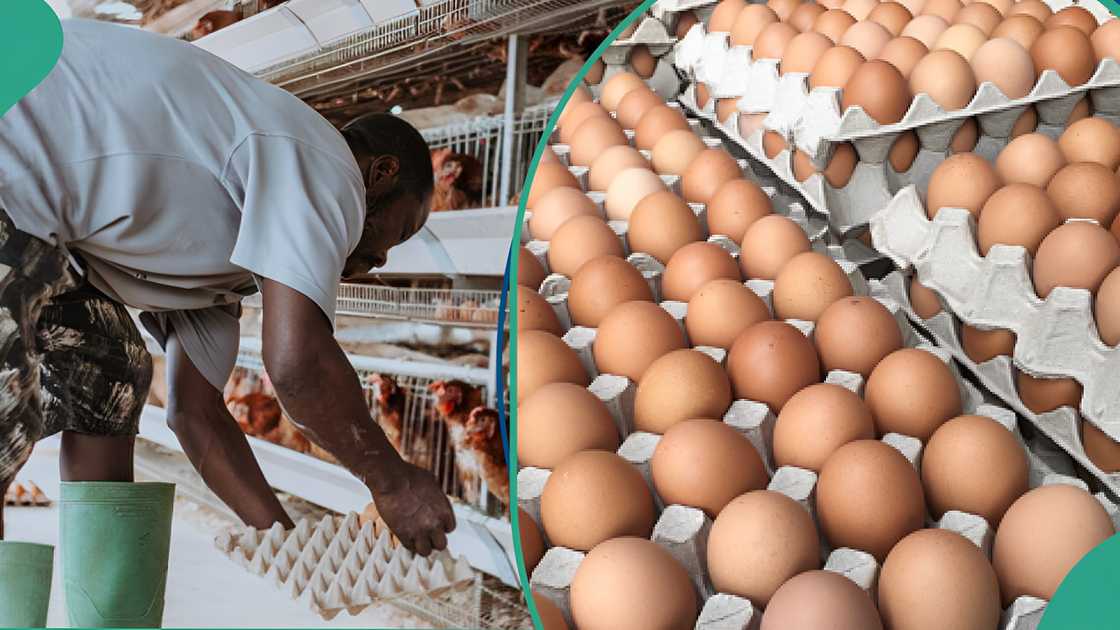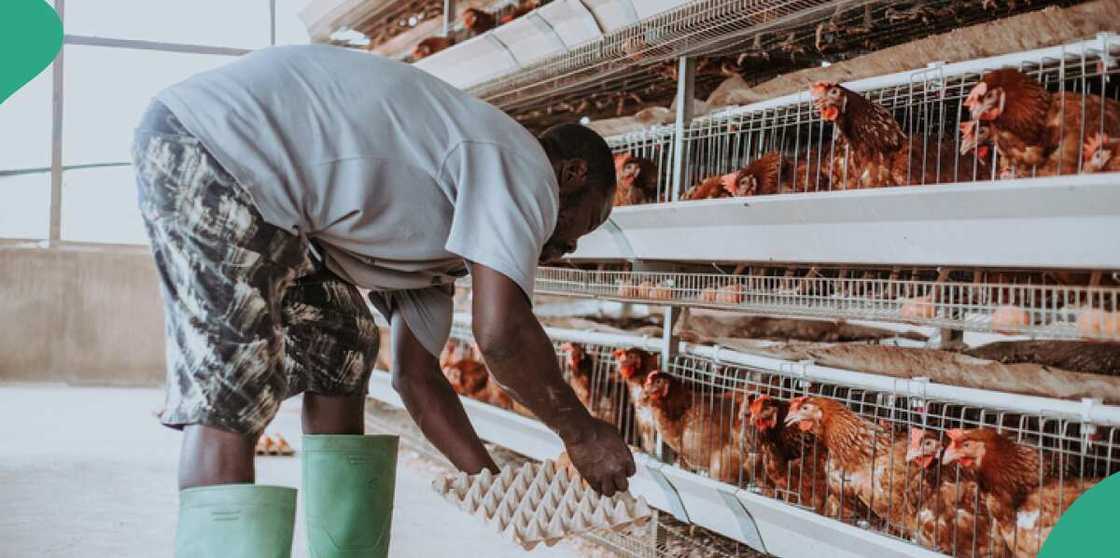Crate Of Eggs Set To Sell For New Prices As Poultry Feed Cost Declines
- Traders are poised to make eggs more affordable in the near future as poultry feed prices are said to be going down
- The president of the Feed Millers Association has also called on the federal government to review tariffs and VAT on livestock imports
- He highlighted double taxation, airport delays, and bureaucratic bottlenecks while recommending contract farming for feed-grade maize
Dave Ibemere, a journalist at Legit.ng, has been reporting on business for over ten years. He has deep knowledge of the Nigerian economy, stock market, and general market trends.
The Feed Millers Industry Practitioners Association of Nigeria (FIPAN) has disclosed that the federal government agricultural policies introduced under President Bola Tinubu are beginning to bear fruit.
Ayoola Oduntan, the national president of FIPAN who made this remark said that the policies have helped in the decline of feed prices.
Read also:Davido Appreciates His Trinidad Fans The Energy Love The Way You Embraced Me It Felt Like Home

A crate of eggs is currently sold at between N5,500 to N6500 or more depending on location.
FIPAN's president believes that the prices will be reduced very soon.
Oduntan said:
"Agricultural reforms take time to manifest in the market, but we are now witnessing tangible results.
"Some vendors stocked up during peak prices, but with decreasing feed expenses, chicken prices are also on the decline. It's only a matter of time before eggs become more affordable."
New price of a crate of eggs
To achieve a real impact in the market, Oduntan urged President Bola Tinubu to review tariffs on vital livestock imports.
He cautioned that high duties and value-added taxes (VAT) on imported feed additives and raw materials were inflating production costs.
Additionally, he stressed the need for increased support to maize, soya, and groundnut farmers, alongside enhanced research funding to promote local raw material utilisation, Punch reports.
Read also:She Wants Lambo Fans React To Burna Boy And Naomi Campbells Fun Time In France
Highlighting operational challenges, Oduntan pointed out double taxation, airport delays, and bureaucratic bottlenecks as significant hurdles impeding industry progress.

He cautioned that without policy adjustments, livestock farmers would continue grappling with soaring feed expenses, potentially leading to job losses, diminished protein supply, and heightened dependence on costly food imports.
Despite these challenges, Oduntan commended the government's efforts in stabilising feed prices.
These efforts include enhancements in security, the embargo on maize and soya exports, and the establishment of the Ministry of Livestock Development.
He also lauded the recapitalisation of the Bank of Agriculture, which has improved the agricultural value chain, Leadership reports.
To sustain momentum, FIPAN recommended forging partnerships with agricultural agencies to implement contract farming for feed-grade maize.
This move aims to curtail competition with human consumption, thus ensuring a sustainable livestock feed supply.
Some foods are no longer affordable to Nigerians
Earlier, Legit.ng revealed that some formerly cheap food items were no longer affordable to average Nigerian households.
According to a market survey, the rising food inflation in Nigeria has forced the prices of some basic food items to become unaffordable for many citizens.
Essential foods like garri, rice, and others have become so expensive that many would spend most of their income on food.
Consequently, many households across the country are finding it very hard to meet their daily dietary needs
Proofreading by Nkem Ikeke, copy editor at Legit.ng.


